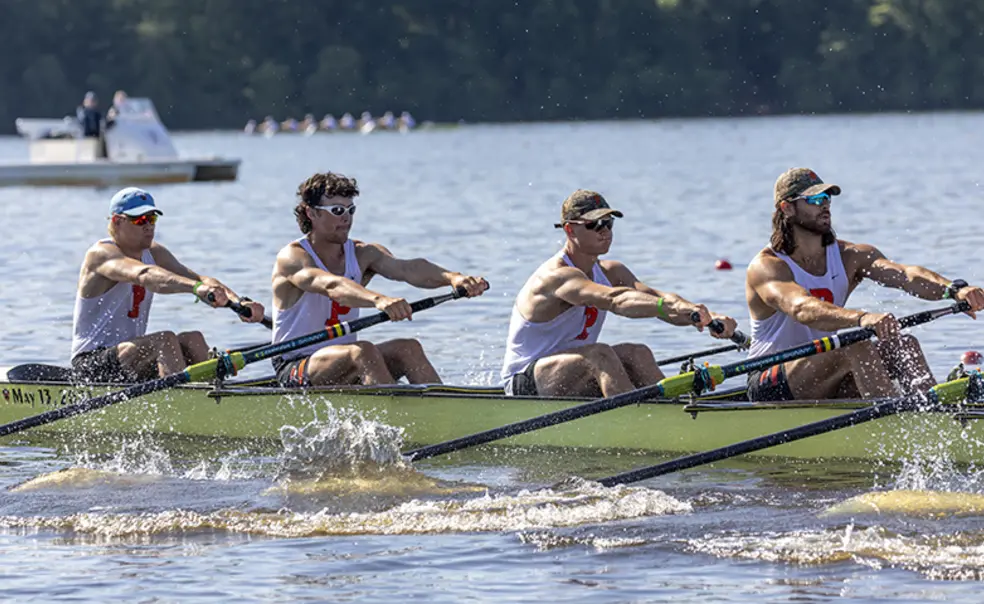Norwegian Sculler Jonas Juel ’22 Trains for Big Races Ahead
The life of a national team rower suits Juel, who is also pursuing a master’s degree in cognitive neuroscience
Maybe you’ve felt it before. Maybe the mix of pride and expectation and the demand to show up as your best self is natural to you, that feeling of anticipation and drive and ambition all mixed together as a springboard for greatness. This feeling is often in the air at a rowing regatta: the tension of expectation, the reality of training and preparation, the hunt for gold with every stroke.
For Jonas Juel ’22, a rower on the Norwegian national team, that mix of accomplishment and constant pursuit is the world he wakes up in, the qualities he uses to spur his training, and the drive that takes him around the world to training camps as he seeks to win a spot in this summer’s Paris Olympics.
Juel was the team captain for Princeton men’s heavyweight rowing his senior year, the team’s first full season after the pandemic lockdown. “It’s easy to lead — to be a voice — when you can do what’s expected of you as an athlete,” he said. “But my senior year, I couldn’t do those things.” Juel fought through the remains of long COVID to return to training. “The team and the sport of rowing meant a great deal to me. I always tried to stay close to the team and be the best contributor I could be.”
Juel described the racing he did at Princeton with a low, knowing chuckle, “Rowing races are won way before the start is actually called at the starting line. They’re won months before, in practice.” And now, as he prepares to race for a spot in the Paris Olympics, he leverages this lesson. “As a rower, I’ve learned to stay attuned to my body, to feel the effect of my training,” he said. “I know it pays to be cautious — but also courageous — with my training.”
Juel now rows in the 4-person sculling boat (the 4-), a different beast altogether from the 8-person sweep boat he raced as a Tiger. “If you’re [a rower] in Norway, you have to know how to scull,” he said. He paused to lift a stein of water to his lips, hydrating even as we spoke. “Being in the mix of international racing, living this ‘national team rower’ life was always something I envisioned after graduation. It’s a very simple life. We row out of a simple boathouse on a lake outside of Oslo. We row, we cook some lunch, we row some more, then we go home. I feel lucky.
“You get to devote a couple years of your life to becoming as good as you can at something that is very measurable. It’s an honest sport. You get the chance to develop yourself, and your place on the team.”
As he travels the world training and racing, Juel is pursuing a master’s degree in cognitive neuroscience at the University of Oslo. “It’s a very research-oriented program and it stimulates my curiosity,” he said.
Norway still needs to qualify the 4- for the Olympics. “In May, we’ll be racing in the World Cup to earn a spot in Paris,” Juel said. “If we do well, it won’t end up being the most important race of the year, but if we don’t do well, it’s the final race of the year.”
Somehow, Juel’s equanimity is palpable: that knowledge of what it takes to show up as your best self. “I’ve never diverted from the path I had set for myself,” he said, “but I also have a very solid appreciation for the things I’m allowed to do right now.”












No responses yet